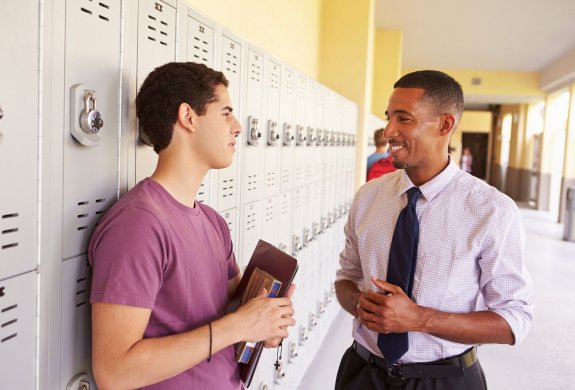In a recent post titled ‘Four tips for a head of year to support students returning to school’, I spoke of rebuilding positive relationships with students and their families.
Relationships in working with young people is something I was first introduced too whilst training as a youth worker. In particular, a book by the author Kerry Young called ‘The Art of Youth Work’ (1999) served as my introduction to relationships in practice.
At the time, I felt sure I had fully understood the importance of relationships and their uses as a practitioner. However, after becoming a teacher and then a head of year, I discovered that there was much more to building relationships than simply having young people talk with and trust you.
Relationships in schools
At the heart of being a great head of year is an ability to build positive relationships with pupils, staff and parents. These relationships will allow you to provide guidance, support your year group and provide challenge where it is needed. Building up positive relationships is more than smiling at everybody and saying hello; much of your work as a head of year will be building up key relationships through listening to the worries of others, giving people your time and showing that you care about their issues.
Building relationships with whole families is important. Your students do not come as a single person, they are heavily influenced by those who they live with. Building up a relationship with the family rather than just a child allows you to provide more informed support, makes it easier to discover issues and when necessary challenge behaviour.
What about relationships you already had established?
Time apart will have an effect on previously established relationships, you would be foolish to assume you can pick up where you left off before schools closed to many students and all of our contact went online.
Your students will undoubtedly be in a heightened emotional state when they return to school and find their way back into a routine. Relationship building will be key in re-building the trust between you, your students and their families.
How to build or rebuild relationships
- Notice the good things
The most infuriating thing for most parents is the lack of communication they can experience when their child is doing everything right. Busy schedules mean schools are often poor at communicating with parents outside of scheduled events unless something goes wrong. A simple message home or phone call to say you have noticed something good will help build up that link between home and school. - Show an interest
This doesn’t mean fake an interest. So do not pretend to care about a child’s favourite sports team. Instead, be interested when students talk about their lives and talk to them about families. When you speak with parents, ask how they are doing and how things are at home. It can feel awkward and some find it useful to have prompts but showing an interest really helps to develop an interest.
- Have empathy
Empathy is important in developing any relationship. Empathy is all about how you understand and share experiences with families. There is no expectation for you to fully ‘get’ what people are going through, but show compassion for their situation. Demonstrate to your students and their families that even though you many never have experienced the situation they are in, you understand the impact this may be having on them and support if and when you can. - Do what you say
This final point goes without saying, if you make a promise to a family. Keep to it. Nothing can destroy a relationship quicker than failing to hold up your end of a deal or failing to deliver on a promise.
I have previously written about building positive relationships in the classroom, which includes 10 tips for building positive relationships with students. However, in a post-COVID society, building relationships with families as well as the individual students will be vital in getting students back to school successfully.
Further Reading
Young, K. (1999). The Art of Youth Work. Lyme Regis: Russel House Publishing.
